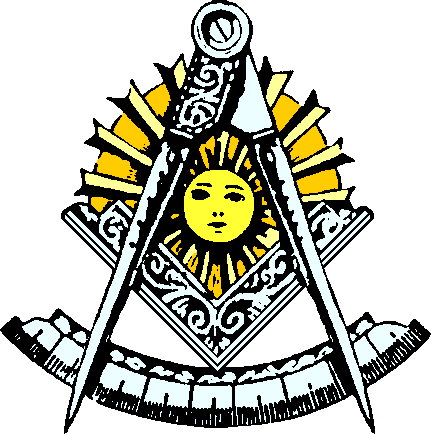by Midnight Freemason Contributor
WB Adam Thayer
Of all the emotions that we experience in our daily lives, anger may be one of the most potent. It has the ability to completely consume and overwhelm our rational mind, leaving us a complete slave to its whims. It, along with love, is one of our most God-like emotions; outside of love, the Bible speaks most frequently of God’s anger at His wayward children.
The most dangerous part about anger is that, often, it leads us into irrational, potentially damaging actions that can negatively affect us far into the future. Our peers, seeing our actions, may lose respect for us. We may say words in anger that damage, or even destroy, our relationships. If we’re especially unwise, we may even vent our anger in writing, leaving proof of our inability to control our emotions for all to see.
Brothers, this is an especially difficult topic for me, because I struggle with controlling my anger daily. To me, it has become an almost separate entity; a beast that has taken up residence in my mind and that I have to fight against to maintain the balance in myself. I had such a dread of writing this topic that I have developed an inability to write for the past two months and have had to rely on articles that I banked up for just such an occasion.
The thing about anger is, there really isn’t a good answer to it. If you indulge in it to get past it, you hurt those around you as well as yourself. If you bottle it up, it will eat away at you until you explode in rage. Besides, the whole goal was to control the anger, not suppress it.
In my search for more light about anger, I find myself contemplating two striking (and often overlooked) symbols from our ritual.
The first is the Volume of Sacred Law. Now of course each Mason brings to the table his own Volume, and I cannot begin to tell you what is in yours, however I can tell you the words of King Solomon that are in mine: “Fools give full vent to their rage” (Proverbs 29:11). Solomon was wise enough to recognize the importance of keeping his anger in check, and there is no greater example for a Freemason to inspire to.
The second symbol, which is one I find useful in so many situations, is the compass (or, if you prefer, compasses). The art of circumscription is one that can be applied to so many situations that it is hardly any wonder our ancient brethren chose it (along with the square) to be the most public symbol of our craft. It is a subtle craft; when appropriately applied, it may go unnoticed by the world outside of ourselves.
Taken together, these symbols become even more powerful; we can use the teachings of our Volume of Sacred Law to help us learn how to better circumscribe our anger. Our Volume of Sacred Law teaches us how to appropriately express our anger, and the compass reminds us of how to reign it in.
In theory, all of that is great. In practice, when the blood is boiling, and all I want to do is lash out and make the irritant feel as much torment as possible, it is very difficult to remember that there are boundaries to our actions that we must NEVER suffer our passions to cross. So, here are some practical solutions, in the hopes that you will find them useful, and that I will keep reminding myself of them:
1) Remove yourself from the situation. Odds are, if you stay within the situation, you’ll just make your anger worse, like leaving a pot of water on the stove until it boils over.
2) Think, think, think. What is causing your anger, what are some possible solutions, and most importantly ask yourself what the outcome would be if you really let your anger out like you want.
3) Talk, but do it carefully, and don’t stop thinking. It’s important to release the anger slowly and carefully, and in a non-confrontational manner. While you’re talking, instead of saying “you”, try saying “I”, and be specific. For example, instead of saying “You never do any of the work at the lodge”, try saying “I’m upset that I had to spend an hour cleaning the kitchen alone”. It is much more useful to express yourself in this manner.
4) Exercise. I hate exercise, but since I’ve started back in I’ve dropped weight, put on muscle, and feel much less stress than I used to. It’s important to not neglect the physical temple while we’re refining the mental temple.
5) Forgive. Forgiveness is one of the most powerful tools we have at our disposal, and can go a long way to healing ourselves and our relationships. If we start with forgiveness, we often find that the anger has resolved itself.
I hope this has helped you. I know that writing it, and just admitting my own issues, definitely has helped me.
~AT
WB. Bro. Adam Thayer is the Senior Warden of Lancaster Lodge No. 54 in Lincoln (NE) and a past master of Oliver Lodge No. 38 in Seward (NE). He’s an active member in the Knights of Saint Andrew, and on occasion remembers to visit the Scottish and York Rites as well. He continues to be reappointed to the Grand Lodge of Nebraska Education Committee, and serves with fervency and zeal. He is a sub-host on The Whence Came You podcast, and may be reached at adam@wcypodcast.com. He will not help you get your whites whiter or your brights brighter, but he does enjoy conversing with brothers from around the world!















